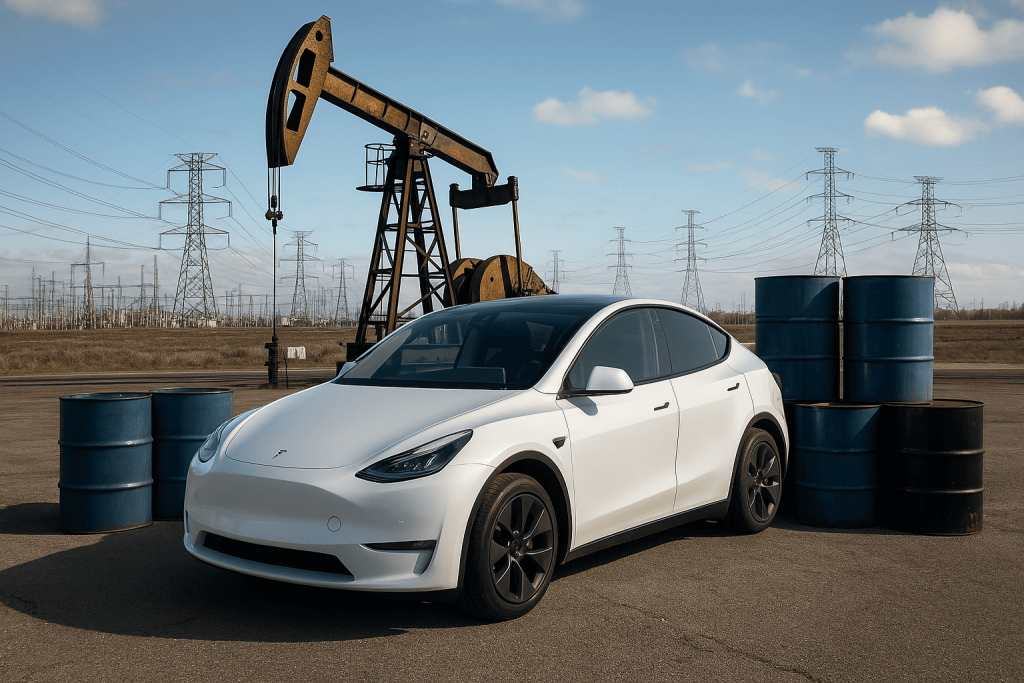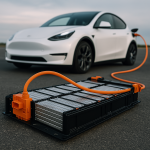The global shift from internal combustion engines to electric vehicles (EVs) is not merely transforming the automotive sector—it is reshaping entire industries. Driven by climate concerns, regulatory pressures, and consumer demand for sustainable transportation, EV adoption is accelerating rapidly. This transition extends far beyond traditional automakers, opening enormous growth opportunities for companies involved in battery manufacturing, critical raw materials extraction, charging infrastructure, technological innovation, and renewable energy solutions. This article delves deep into these sectors, exploring which companies stand poised to capitalize most effectively on the electrification revolution.
Battery Manufacturers: The Backbone of Electric Vehicles
At the heart of every electric vehicle is the battery, making battery manufacturers the immediate beneficiaries of the EV boom. As demand for EVs explodes, so too will the need for advanced, high-capacity batteries.
Contemporary Amperex Technology Co. Ltd. (CATL): As the world’s largest EV battery manufacturer, China-based CATL dominates the global battery market, supplying automotive giants such as Tesla, BMW, and Volkswagen. Its immense scale, state-of-the-art R&D facilities, and expansive production capabilities position it as a leading player for years to come.
LG Energy Solution: South Korea’s LG Energy Solution is rapidly expanding production capacity, securing partnerships with leading automakers like General Motors, Ford, Hyundai, and Volkswagen. Its global footprint and cutting-edge battery technology firmly place it at the forefront of the EV supply chain.
Panasonic: Panasonic remains a vital partner to Tesla, operating the Nevada Gigafactory and driving innovations in next-generation battery technologies, including solid-state cells, positioning it strongly within the industry.
BYD: As both an automaker and a battery producer, BYD benefits from vertical integration, enabling cost-effective, rapid innovation. Its strategic expansion into international markets further bolsters its global influence.
Critical Minerals and Rare Earth Producers: Securing the Supply Chain
The electrification of vehicles significantly boosts demand for lithium, cobalt, nickel, copper, and rare earth elements, which are critical for battery production and electric motor technologies.
Albemarle Corporation: Albemarle is a leading global supplier of lithium, essential for battery production. With operations spanning North America, South America, and Australia, Albemarle is strategically positioned to meet the accelerating demand for lithium-ion batteries.
Glencore: As a major global mining corporation, Glencore commands significant portions of the cobalt market, a crucial element in EV batteries. Its extensive resource base and partnerships with automakers ensure its critical role in the evolving EV landscape.
MP Materials: MP Materials, which owns and operates the largest rare-earth mining and processing site in North America (Mountain Pass mine in California), is instrumental in reducing dependency on foreign rare earth supplies, pivotal for EV motor production.
Charging Infrastructure Providers: Enabling Mass EV Adoption
As electric vehicle adoption accelerates, the importance of robust, widespread charging infrastructure cannot be overstated. Companies specializing in charging solutions are key beneficiaries of this growing demand.
ChargePoint: Operating one of the world’s largest EV charging networks, ChargePoint provides comprehensive solutions for both residential and commercial markets, leveraging recurring revenue streams and long-term contracts with major enterprises and municipalities.
EVgo: Focused primarily on fast-charging networks, EVgo is rapidly expanding through strategic partnerships with automakers and retail establishments, solidifying its status as a critical player in public EV infrastructure.
Tesla Supercharger Network: Tesla’s proprietary global Supercharger network represents a major competitive advantage and potential future revenue stream, particularly as it begins opening select locations to non-Tesla vehicles, significantly enhancing its market reach.
Technology and Software Leaders: Driving Innovation and Connectivity
Beyond hardware, the EV era places tremendous value on technological innovation, software integration, autonomous driving capabilities, and connectivity. Tech giants will increasingly dominate this space.
NVIDIA: Renowned for its GPUs, NVIDIA’s DRIVE platform underpins autonomous driving and AI-assisted vehicle technology. Partnerships with major automakers, including Mercedes-Benz and Volvo, highlight its central role in automotive innovation.
Qualcomm: Qualcomm is driving advancements in in-vehicle connectivity and infotainment systems through its Snapdragon Automotive platforms, making it integral to the future of connected and smart electric vehicles.
Apple and Google: Through Apple’s CarPlay and Google’s Android Auto, these tech giants have effectively dominated vehicle infotainment systems. Rumored expansions into direct EV manufacturing (such as the Apple Car project) could further entrench their positions in the industry.
ABB and Siemens: These industrial leaders provide essential hardware and software for EV infrastructure, smart grids, and vehicle-to-grid integration, positioning themselves strategically within the broader electrification ecosystem.
Renewable Energy and Utilities: Powering the EV Future
The electrification of transportation will significantly increase demand for electricity, providing substantial growth opportunities for renewable energy companies and utility providers.
NextEra Energy: As a leader in wind and solar energy generation, NextEra Energy is perfectly poised to supply clean electricity for the increasing number of EVs, enhancing grid stability and renewable integration.
Duke Energy and PG&E: Major utility companies are investing heavily in charging infrastructure, integrating EV-specific rate structures and renewable sources to sustainably support growing electric vehicle demand.
Conclusion
The transition to electric vehicles is far more transformative than simply replacing combustion engines with electric motors—it signifies a profound realignment of multiple global industries. While automakers like Tesla, Volkswagen, Ford, and others will directly benefit, the broader economic impacts will elevate companies across battery production, raw materials, charging infrastructure, software innovation, and renewable energy sectors.
Investors, businesses, and policymakers should closely monitor these sectors, as the companies best positioned to navigate supply chain complexities, innovate rapidly, and integrate seamlessly into emerging EV ecosystems will ultimately emerge as dominant players. The electric vehicle revolution is not just about building cars—it’s about reinventing global transportation, energy management, and industrial competitiveness in the decades ahead.



But can the power grid even handle this many EVs?
prob… 🤔 power plants don’t run at full tilt
Wow 😮 Definitely a must-read for anyone interested in the future of transportation and sustainable energy!
Lmao most of that energy stil coms from burnin gas and oil 😂
evs change everything 🌎! not just cars. battery, charging, etc. gettin big. Its cool!!1!
Fingers crossed… sucks that they just ain’t that big right now. 😔
Another evs revolution? huh, god luck
Dats true heh. Every week dey be sayintheres anotha revolution 🥱🥱
honestly EV shift seems overrated
big $$ in evs 😎 but fr who gonna win??
hell yeah its us! who else? 😂🤣